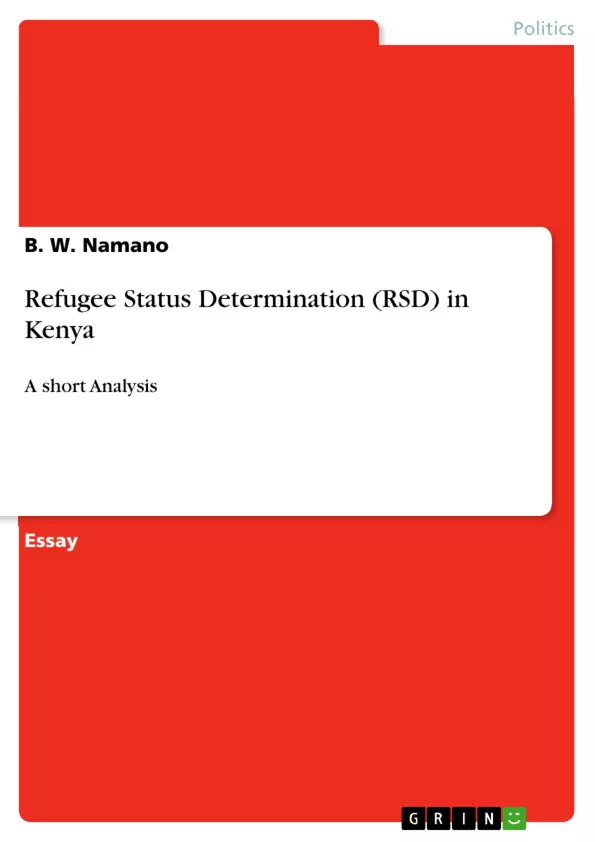RSD is the legal or administrative process by which governments or the United Nations High Commissioner for Refugees (UNHCR) determine whether a person seeking international protection qualifies to be declared a refugee under international, regional or national law. States have the primary responsibility for conducting RSD, but UNHCR may do so where states are unable or unwilling. The RSD process in Kenya is very similar to that of South Africa. This process is outlined in the Refugees (Reception, Registration and Adjudication) Regulations, 2009 (just Refugees Regulations, 2009 for the purposes of this essay). The Refugees Regulations, 2009 is a subsidiary legislation of the Refugees Act 2006.
Table of Contents
- Refugee Status Determination (RSD) in Kenya
- Introduction to RSD
- RSD Process in Kenya
- Asylum Seeker's Narrative
- Applicable Rules
- RSD Officer Deliberations
- Conclusions and Recommendations
Objectives and Key Themes
This essay provides a detailed analysis of the Refugee Status Determination (RSD) process in Kenya. It explores the legal framework, procedures, and challenges associated with determining refugee status for individuals seeking international protection in the country.
- The legal framework and procedures for RSD in Kenya
- The experiences and narratives of asylum seekers within the Kenyan RSD system
- The role of the Commissioner for Refugee Affairs and other key actors in the RSD process
- The challenges and limitations faced by asylum seekers during the RSD process
- Recommendations for improving the effectiveness and fairness of the RSD process in Kenya
Chapter Summaries
- Refugee Status Determination (RSD) in Kenya: This chapter provides an introductory overview of the concept of RSD, highlighting its importance in the international protection regime. It also outlines the key legal frameworks governing RSD in Kenya.
- Introduction to RSD: This chapter delves into the definition and purpose of RSD, discussing the role of states and the United Nations High Commissioner for Refugees (UNHCR) in determining refugee status. It explains the legal basis for RSD, referencing international and regional conventions.
- RSD Process in Kenya: This chapter presents a detailed analysis of the RSD process in Kenya. It covers key stages, from the initial reception and registration of asylum seekers to the RSD interview and the final decision-making process. It also discusses the relevant regulations and legislation.
Keywords
This essay focuses on Refugee Status Determination (RSD) in Kenya, examining the legal framework, procedures, and experiences of asylum seekers within this process. Key themes explored include international protection, refugee law, asylum seeking, the role of the Commissioner for Refugee Affairs, and the challenges faced by asylum seekers in navigating the RSD system.
- Quote paper
- B. W. Namano (Author), 2020, Refugee Status Determination (RSD) in Kenya, Munich, GRIN Verlag, https://www.grin.com/document/981205



